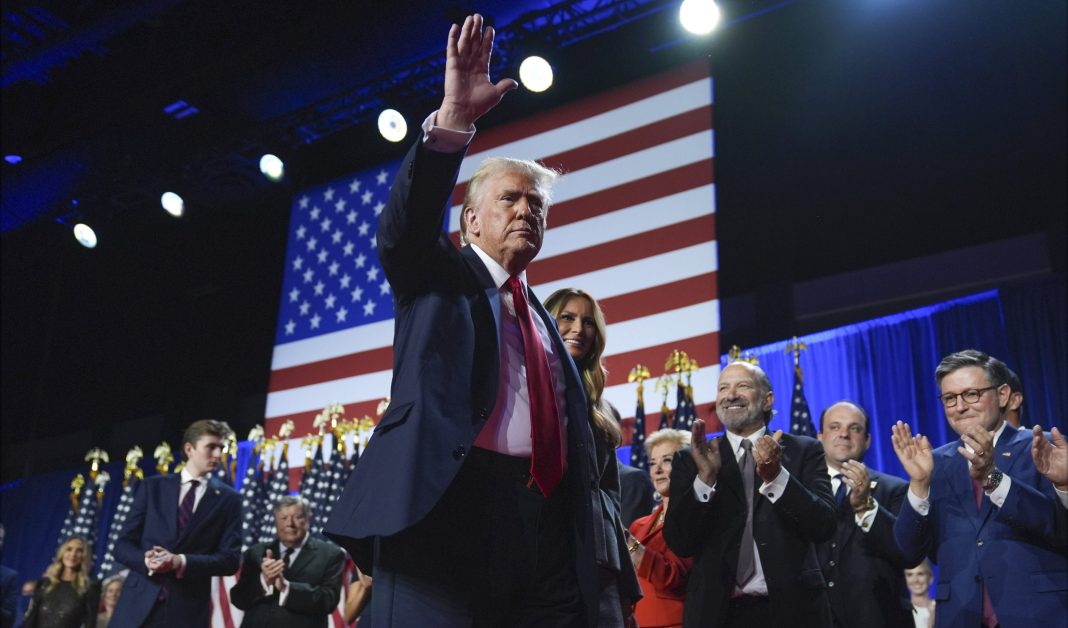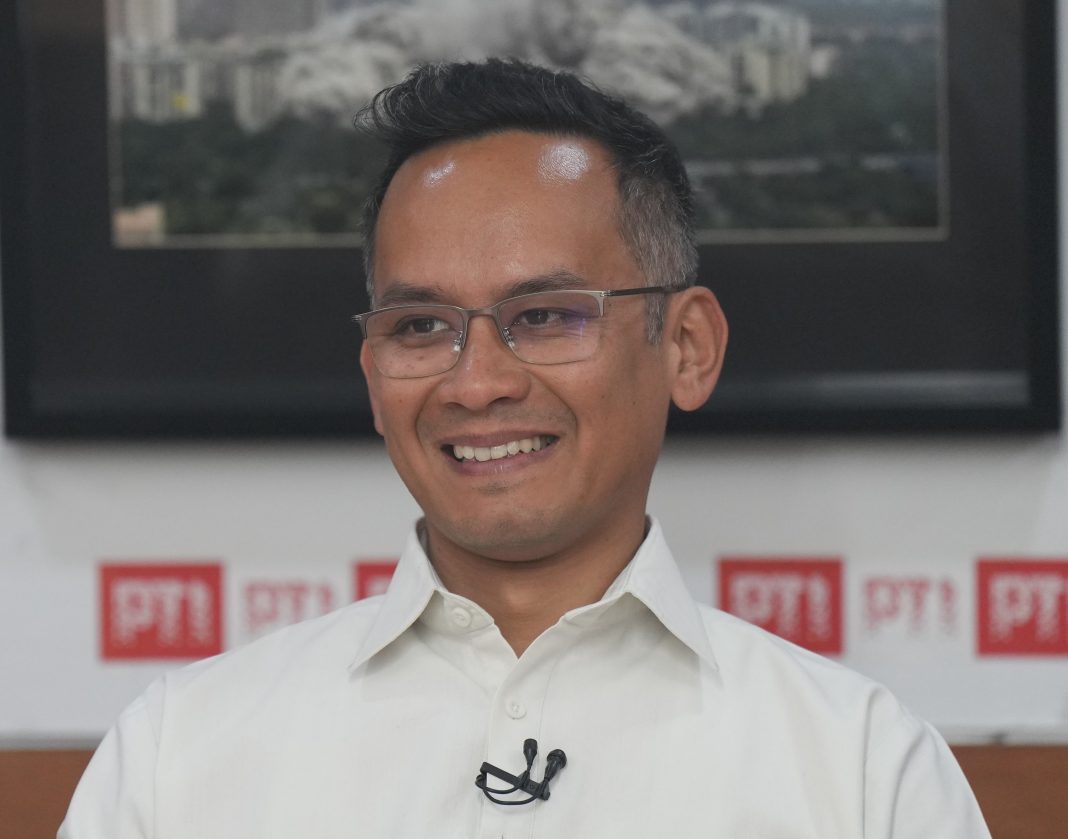New York/Washington, Sept 20: In a development that could adversely affect Indian professionals in the US, President Donald Trump has signed a proclamation to raise the fee for H-1B visas to a staggering USD 100,000 annually, a move described by American lawmakers and community leaders as “reckless” and “unfortunate”.
Trump on Friday signed the proclamation ‘Restriction on entry of certain nonimmigrant workers’, saying the abuse of the H-1B visa programme is a “national security threat”.
Immigration attorneys and companies have asked the H-1B visa holders or their family members currently outside America for work or vacation to return within the next 24 hours or risk being stranded and denied entry into the US after the proclamation comes into effect from 12:01 am September 21.
Congressman Raja Krishnamoorthi described the decision to hike the H-1B visa fee as a “reckless attempt to cut America off from high-skilled workers who have long strengthened our workforce, fuelled innovation, and helped build industries that employ millions of Americans.”
Ajay Bhutoria, a former advisor to President Joe Biden and Asian-American community leader on immigration policy, warned of a potential crisis for the US technology sector’s competitive edge with Trump’s decision on the H-1B visa fee.
“The H-1B programme, a lifeline for innovation that has attracted top talent from around the world, faces unprecedented barriers with this massive jump from the current USD 2000-USD 5000 total fee, which will crush small businesses and startups reliant on diverse talent,” he said.
Currently, the H-1B visa fee ranges from about USD 2000 to USD 5000, depending on employer size and other costs. The visas are valid for three years and can be renewed for another three years.
The move is going to significantly impact Indian technology workers who are hired by tech companies and others on H-1B visas.
Tata Consultancy Services (TCS) is the second-highest beneficiary with 5,505 approved H-1B visas in 2025, after Amazon (10,044 workers on H-1B visas), according to the US Citizenship and Immigration Services (USCIS). Other top beneficiaries include Microsoft (5,189), Meta (5,123), Apple (4,202), Google (4,181), Deloitte (2,353), Infosys (2,004), Wipro (1,523) and Tech Mahindra Americas (951).
In his proclamation, Trump said the H-1B visa programme was created to bring temporary workers into the US to perform additive, high-skilled functions, but it has been deliberately exploited to replace, rather than supplement, American workers with lower-paid, lower-skilled labour.
“The abuse of the H-1B programme is also a national security threat. Domestic law enforcement agencies have identified and investigated H-1B-reliant outsourcing companies for engaging in visa fraud, conspiracy to launder money…, and other illicit activities to encourage foreign workers to come to the US,” he said.
Trump said that it is necessary to impose higher costs on companies seeking to use the H-1B programme to address the abuse of that programme while still permitting companies to hire the best of the best temporary foreign workers.
On whether the technology CEOs, who hire foreign workers on H1-B visas, are concerned about the new move, Trump said they’re going to be “very happy”.
Trump ordered that the Secretary of Homeland Security shall restrict decisions on petitions not accompanied by a USD 100,000 payment for H-1B speciality occupation workers, who are currently outside the US, for 12 months following the effective date of the proclamation, which is September 21, 2025.
The Secretary of State shall also issue guidance, as necessary and to the extent permitted by law, to prevent misuse of B visas by alien beneficiaries of approved H-1B petitions that have an employment start date beginning before October 1, 2026.
It said the restrictions shall not apply to any individual or those working for a company or in an industry, if it is determined that the hiring of such individuals to be employed as H-1B speciality occupation workers is in the national interest and does not pose a threat to the security or welfare of the US.
The proclamation said that IT firms in particular have prominently manipulated the H-1B system, significantly harming American workers in computer-related fields.
Noting that the share of IT workers in the H-1B programme grew from 32 per cent in 2003 to an average of over 65 per cent in the last five fiscal years, the proclamation said that some of the most prolific H-1B employers are now consistently IT outsourcing companies.
White House staff secretary Will Scharf said the H-1B non-immigrant visa programme is one of the “most abused visa” systems in the country’s current immigration system, and it is supposed to allow highly skilled labourers, who work in fields that Americans don’t work in, to come into the United States.
Commerce Secretary Howard Lutnick said that historically, the employment-based Green Card programme let in 281,000 people a year, and those people earned USD 66,000 a year on average, and were five times more likely to participate in assistance programmes of the government.
“So we were taking in the bottom quartile, below the average American. It was illogical, the only country in the world that was taking in the bottom quartile,” he said.
“We are going to stop doing that. We’re going to only take extraordinary people at the very top, instead of those trying to take jobs from Americans. They’re going to create businesses and create jobs for Americans. And this programme will raise more than USD 100 billion for the treasury of the United States,” he added.
When asked if the new fee will apply to the H-1B visa holders already in the country, to renewals or to those applying for the first time from abroad, Lutnick said, “Renewals, first times, the company needs to decide. Is that person valuable enough to have a USD 100,000 a year payment to the government, or they should head home and they should go hire an American?”
If a company sponsors an employee for the Green Card, the visas can be renewed till the permanent residency comes through. However, Indians on work visas in the US are caught in a decades-long wait for Green Cards, and the new move could have an impact on whether they can continue to stay in the US if their companies decide not to pay the USD 100,000 fee annually now required to retain the visas.
Krishnamoorthi said many H-1B holders ultimately become citizens and launch businesses that create well-paying jobs in the US. “While other nations race to attract global talent, the US should strengthen its workforce and modernise our immigration system – not erect barriers that weaken our economy and security,” he said.
Bhutoria said that the move will drive away skilled professionals who power Silicon Valley and contribute billions to the US economy.
Khanderao Kand of the Foundation for India and Indian Diaspora Studies said the H-1B visa fee hike is a “very unfortunate” policy with a huge negative impact on businesses, particularly the software and tech industry.
In July, USCIS said that it has received enough petitions to reach the congressionally mandated 65,000 H-1B visa regular cap and the 20,000 H-1B visa US advanced degree exemption, known as the master’s cap, for fiscal year 2026.
The restriction on entry shall apply only to those individuals who enter or attempt to enter the United States after September 21, 2025.
“H-1B visa holders who are out of the US on business or vacation will get stranded unless they get in before midnight September 21. H-1Bs still in India may have already missed the deadline, as there is no way a direct flight from India will get in time,” New York-based immigration attorney Cyrus Mehta said in a post on X.
“There may still be a way for an H-1B visa holder who is in India to arrive in California before midnight September 21, 2025,” Mehta said.
Users on social media posted excerpts of an internal email by Microsoft that asked its employees on H-1B visas and their dependents to avoid travelling outside the US and return immediately before the September 21 deadline.
Trump also signed an executive order entitled ‘The Gold Card’, aimed at setting up a new visa pathway for those committed to supporting the United States.
Under the Gold Card programme, individuals who can pay USD 1 million to the US Treasury, or USD 2 million if a corporation is sponsoring them, will get access to expedited visa treatment and a path to a Green Card. (PTI)




